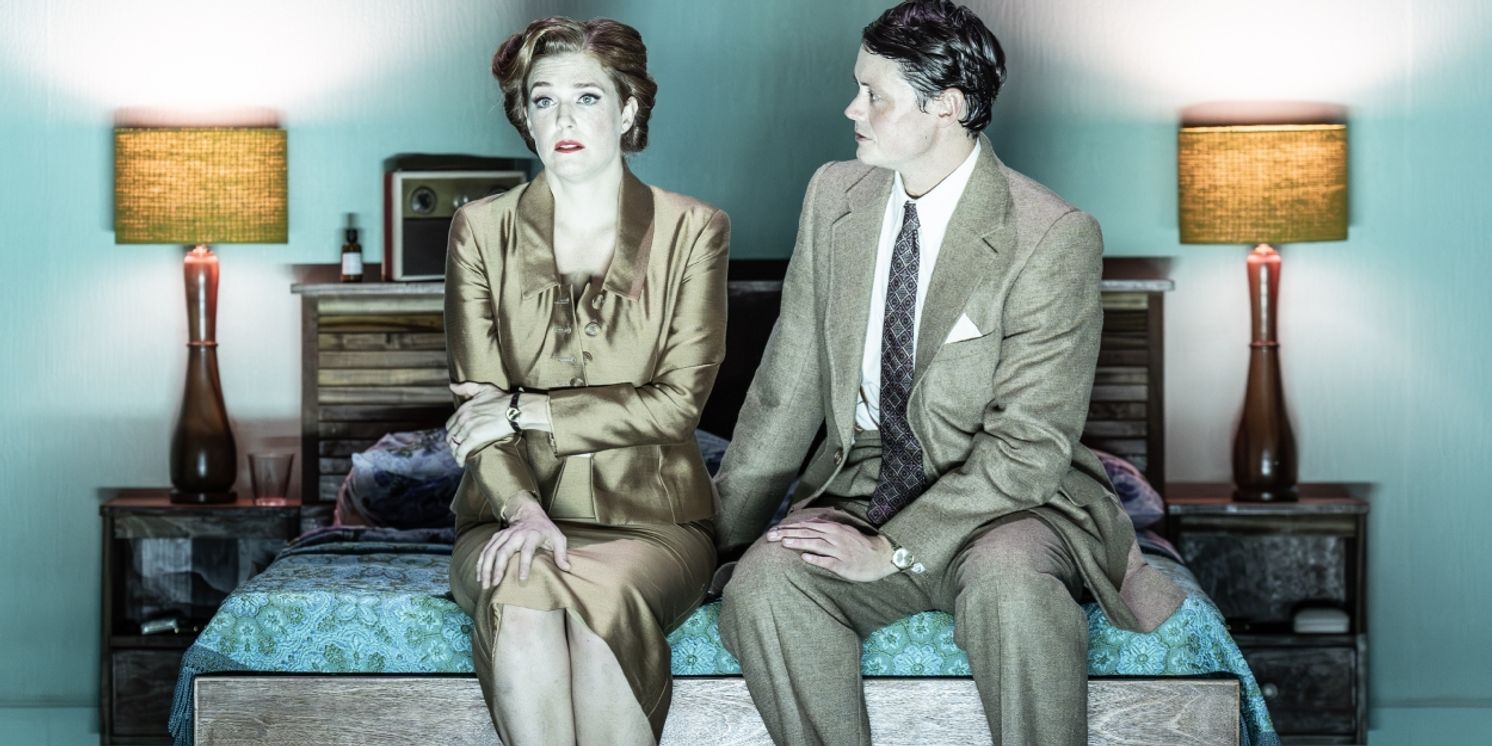Review: TROUBLE IN TAHITI and THE QUIET PLACE, Royal Ballet and Opera
Leonard Bernstein excavates his personal demons in family trauma double header

 It’s a tough watch, Trouble in Tahiti, Leonard Bernstein’s deeply personal portrayal of a fractured marriage based on his own experience as the product of one such miserable alliance. It’s partly due to the inevitable sense of voyeurism involved in our interloping into a bedroom in which love has curdled into indifference and is well down the road to hostility, and partly due to the nagging recognition of conversations and situations into which parenting has pitched oneself. It’s like an anti-date movie!
It’s a tough watch, Trouble in Tahiti, Leonard Bernstein’s deeply personal portrayal of a fractured marriage based on his own experience as the product of one such miserable alliance. It’s partly due to the inevitable sense of voyeurism involved in our interloping into a bedroom in which love has curdled into indifference and is well down the road to hostility, and partly due to the nagging recognition of conversations and situations into which parenting has pitched oneself. It’s like an anti-date movie!
It is beautiful though. Annemarie Woods has saturated the stage in an Edward Hopper green, inviting us to recall the works of the great painter of 20th century American suburbia with their ever-present ache of alienation and ennui. A trio sing close harmony catchy tunes from above the bleak set, like a Greek Chorus extolling the benefits of post-war consumerism for the burgeoning middle classes of the USA. Later we hear them from, well, where exactly? All around us, as we’re afloat on an ocean of lifestyle choices to be sold, sold, sold to us, stuffing our homes while emptying our souls.
Not that the booming economy is doing Sam and Dinah any good. Still talking (if snapping counts), they bicker rather than communicate, in one telling scene actively making up excuses to avoid the torture of lunch as well as dinner in each other’s company. Both still young (it’s easy to forget that even the well-heeled married in their early 20s back then) one fears for their future, divorce carrying a weighty social stigma, the trap tightening with every argument.
Nicholas Chalmers’ orchestra, spilling out of the Linbury’s small pit to serve the full complexity of the score, catches Bernstein oscillating between what might be said to be his opera mode and his musical theatre mode. Sometimes only the costumes (including a truly gorgeous shot taffeta twin set) remind you that the work is both set and written in the early 50s, so fresh is the music.
Wallis Giunta, her repeated changes of outfit reflecting Dinah’s inability to find any equilibrium in her life, sings beautifully as the neglected wife, catching the emotion of her Hopperish loneliness amidst the affluence. You think of how she would fare in the era of Women’s Lib and The Counterculture, still half a generation in the future, by which time she’ll be unrescuable. Henry Neill has a harder time with business executive Sam, a much less sympathetic character, entitled, selfish and unfeeling with more than a hint of the closeted gay man about his gym visits. Vocally strong, but Neill continually reminds us of the narrowness of men’s emotional lives in the 1950s, many, of course, scarred by their wartime experiences.
.jpg?format=auto&width=1400)
The grim reckoning of parenthood - that we pass on our dysfunctionality as much as our genes to our kids - is gruesomely evident in A Quiet Place, written and set 30 years on. Director, Oliver Mears, has much more work to do in this piece, twice as long as the crisp first half and with a larger cast. Try as he might, the emotional intensity is inevitably diluted.
We open on a funeral, Dinah having lost her life in a car crash and Sam (Grant Doyle) stands closed off in the corner, while guests gossip and await for the arrival of the now grown-up children, Junior (Henry Neill), Dede (Rowan Pierce) and her husband, and Junior’s ex-lover, François (Elgan Llŷr Thomas). Such a ménage à trois makes more sense when one sees the context of avoiding the Vietnam War draft by fleeing to Canada a few years earlier.
Much of the playfulness that offset the misery of Tahiti has gone, the score harsher, the performances explicitly bleeding from neurosis to psychosis, the work less subtle in its coruscating portrayal of the American family’s uncanny ability to transmit unhappiness through the generations.
Neill, dressed like all The Village People at once, lets loose the emotions he bottled up as Sam before the interval; Thomas holds back most of the time, François observing the family as one would chimpanzees in a zoo; and Pierce, a wonderful soprano, catches the understandable desire of Dede to be uncomplicatedly loved.
It’s Doyle who navigates the opera’s journey to its oft-repeated moral - that we must accept each other or die - most explicitly, his baritone illustrating his damaged psyche, then finding the joy in his realisation that Dinah’s note had set him free at last. It’s not exactly straightforward from there, but families aren’t, even when buttressed by money, education and privilege.
The evening feels imbalanced. One cannot reverse the chronology (though there are versions of A Quiet Place that includes Trouble in Tahiti as a flashback) so it’s inevitable that the second half feels a slog at times, its relative lack of subtlety in both libretto and score making it a trickier watch.
Nevertheless, this is a rare opportunity to see these two works presented consecutively, but one wonders if there’s room to cut the 1980s opera further or even radically to edit both into a user-friendly single work, which would track the dysfunctional dynamic without losing the terrible beauty of the music and Bernstein’s brutal honesty.
Trouble in Tahiti and A Quiet Place at the Linbury Theatre until 24 October
Photo Credits: Marc Brenner
Reader Reviews
Videos

